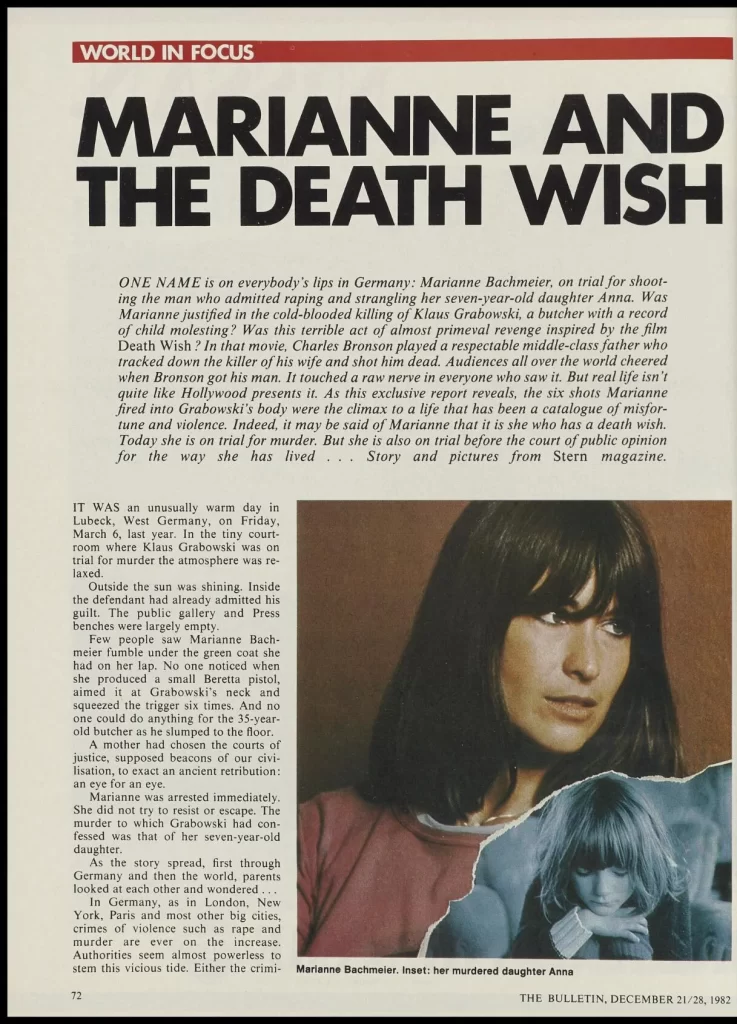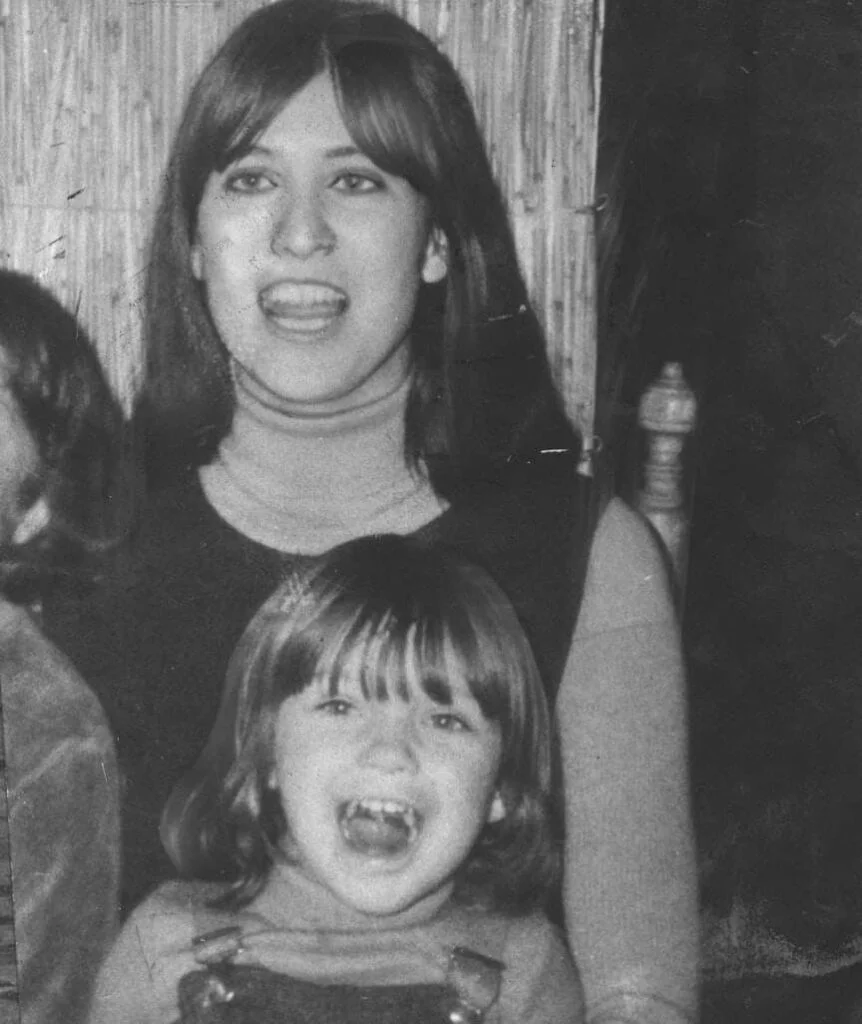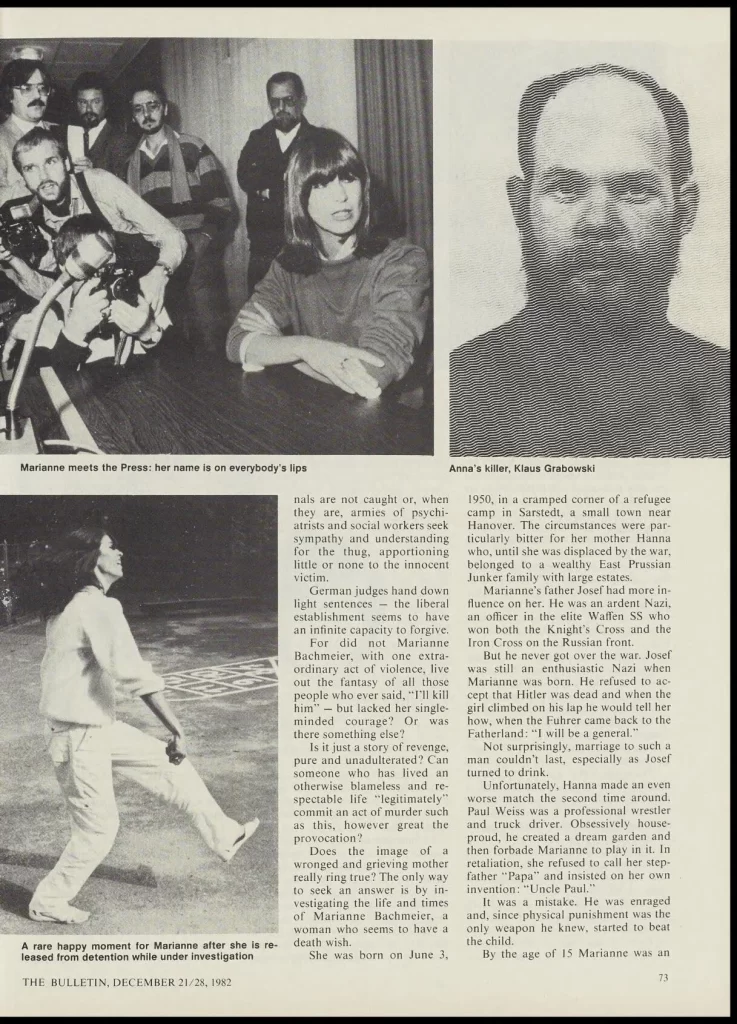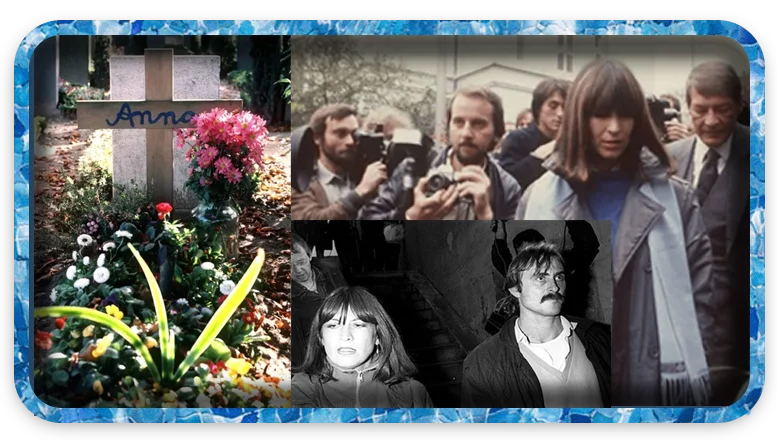Estimated Reading Time: 2 min
The story
The story of Marianne Bachmeier (3 June 1950 – 17 September 1996) is one of deep tragedy, grief, and an extraordinary act that continues to evoke strong emotions worldwide. Marianne, a German mother, made headlines on March 6, 1981, when she shot and killed the man who had murdered her seven-year-old daughter, Anna, in a courtroom during his trial.

Anna had run away from home after a dispute with her mother and was abducted by Klaus Grabowski, a convicted pedophile who had previously served time for similar crimes. Despite undergoing chemical castration, Grabowski had undergone hormone treatments to restore his male functions and was still deemed a threat. Tragically, he killed Anna, fearing she might reveal his identity and criminal past.
Anna Killer
Grabowski’s brutal murder of Anna devastated Marianne and ignited a sense of despair and anger that would culminate in her dramatic courtroom act. During the trial, as Grabowski smugly described the events leading to Anna’s death, Marianne concealed a small pistol in her handbag. Overcome with emotion, she pulled out the gun and fired seven shots at him, hitting him six times. He died instantly.

Marianne’s act shocked Germany and the world. It sparked debates about justice, vigilantism, and the depths of human grief. Many sympathized with her pain and argued that her act was an understandable response to the unimaginable loss of a child. Others questioned the moral and legal implications of taking justice into her own hands.
Her trial was equally polarizing. Marianne was initially charged with murder but was eventually convicted of manslaughter and illegal possession of a firearm. She served six years in prison, but only three were actual confinement, with the rest on parole.

In the years following her release, Marianne lived a relatively quiet life, occasionally speaking out about her actions and the emotional toll they had taken on her. She later moved to Lübeck, where she lived until her death from cancer in 1996.
Marianne Bachmeier’s story remains a haunting example of how grief and trauma can lead to extraordinary actions. Her act of courtroom violence continues to inspire discussions about justice, the legal system, and the depths of parental love and loss. It’s a story that lingers in the collective memory, challenging us to reflect on the boundaries of justice and the human response to unbearable tragedy.

